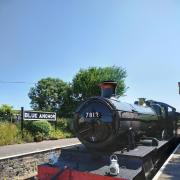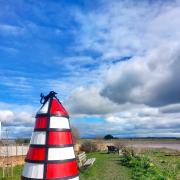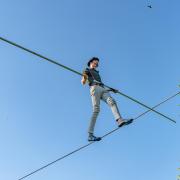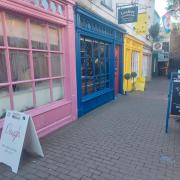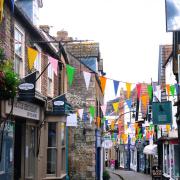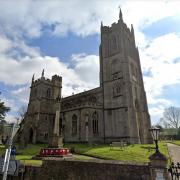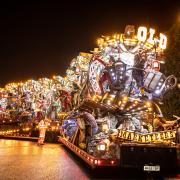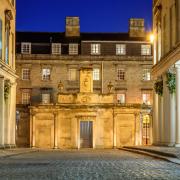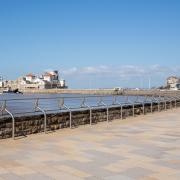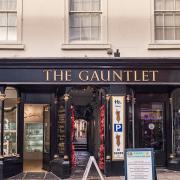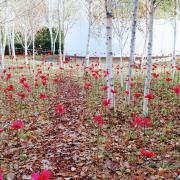Frome may be known as cultural hotspot but its cherished sense of community is what really sets it apart, writes Laurence McJannet

In recent years, Frome has become increasingly touted as a desirable place to live; indeed The Sunday Times nominated the Somerset market town as the best place to take up residence in the whole of the UK. The broadsheet may well have been on to something too, because it is not just for its wealth of independent shops, charming cobbled hills and lovely old listed buildings that people are drawn to this reinvigorated old wool town. It’s something altogether less tangible – a real sense of community spirit.
It is understandable why so many people – families in particular – flock to Frome from London and the south east. While the capital is often seen as a cold, unwelcoming city where people can feel anonymous or disenfranchised, Frome, on the other hand, has community at its very heart.
In fact in a town renowned for its creative thinking, much of what is good about Frome and its community values stems from its innovative independent council, a coalition called Independents for Frome (IfF), which controls all 17 seats on its council and adheres to a very simple pledge – to take political power at a local level, and use it to enable people to have a greater say in the decisions that affect their lives.

It is no surprise then that many initiatives in the town have its residents’ welfare and quality of life firmly in mind, which in turn has helped engender this mutual feeling of community. Take a wander around this fairtrade town and you’ll see how such a mindset has borne fruit. Head to the pleasant rolling pasture of Whatcombe Fields at the town’s western edge, for example, and you’ll see placards that tell a heartwarming tale.
When Whatcombe Fields came up for auction in 2014, there were concerns that another much loved open space in Frome would be lost. Save Open Spaces, the town’s community benefit society, asked the landowner for six months to raise the money to buy the land, and stop impending development on it. With just days to go the funds were still extremely short until a last-minute benefactor stepped in to help reach the £325,000 needed. A group of 282 shareholders now jointly own this beautiful 34-acre stretch of fields and are keen that the public can continue to enjoy them as a community space.
Another, perhaps more obvious example of Frome’s community spirit, is a shop on the high street, aptly called Share (A Library of Things). One of only a handful of such schemes nationwide, Share encourages residents to borrow, for a minimal fee, good quality household and leisure items donated by others. It aims to save people money and reduce waste and has given the young people who created it free, intensive training in community entrepreneurship. It is also based almost exclusively on trust.

The town council put up funding of £7,000 for social enterprise Edventure:Frome to get the Share shop off the ground as one of its ‘school for community enterprise’ schemes. The money was meant to support the shop for six months, after which the hope was that it would become self-sustaining. Two and a half years later the shop is more popular than ever, and looks set to become a permanent fixture on the high street.
The Share shop is also linking up with local housing associations to encourage residents to volunteer, and in doing so spread the word about what’s available to borrow. It will work closely with staff, volunteers and users of the food bank, ensuring it doesn’t become a middle-class swap-shop.
Poverty and social inclusion are at the heart of many of Frome’s community schemes. The charity Fair Frome runs a food and furniture bank for those in financial difficulty, and there is a community fridge in the town’s main marketplace. Local food businesses are encouraged to donate surplus or day-old produce to this colourful hut, which is free for anyone to use and particularly aimed at low-income families or the homeless.

Until recently Frome had a much valued Food Assembly, which connected people with their local food producers through an online market and local pickup. With the Food Assembly project withdrawing from the UK, it was no surprise to see another project – a joint venture between the local organisers of the Assembly and the town’s Steiner Academy, called the Food Hub – immediately spring up to fill the void. One of its producers is Vallis Veg, an ethical, sustainable grower with roots planted deep in the community. It operates its own local veg box scheme as well as supplying the Food Hub, and offers camping facilities, permaculture courses and wildlife events at a farm above Vallis Woods.
Two other worthwhile schemes have sprung up in recent years, tackling loneliness, depression and increasing reliance on medication, particularly in the elderly. Active and In Touch (A&IT) was established in 2011 and is an integral part of the much-lauded Health Connectors community support programme. It is an outreach programme promoting social inclusion and puts people in touch with others who enjoy similar activities, and has even been credited with a drop in hospital admissions from the area.
In a similar vein, the Compassionate Frome project was launched in 2013 by Frome GP Helen Kingston. She kept encountering patients who seemed defeated by the medicalisation of their lives: treated more as a cluster of symptoms than a person with health problems. The project set out to handle debt or housing problems, promote joining choirs, lunch clubs, exercise groups or writing workshops, as well as setting up ‘men’s sheds’ (where men make and mend things together). The point was to break the cycle of illness reducing people’s ability to socialise, leading to isolation and loneliness, in turn exacerbating illness. And this successful project is still going strong.

Access to open green space is also well documented to promote mental wellbeing. Making sure there is plenty for all to enjoy are the Frome Recreation and Open Ground Supporters (or FROGS for short), who have helped to protect and develop the town’s green places. It has helped fund and shape both banks of the river as it passes through town, including a hugely popular pump track on the north bank and a tranquil spot on the south called the Otherside, where local artists have brightened up a previously derelict space and landscaping has helped transform it. Teenagers’ artistic talents have been channeled in a creative way at the town’s football club too – with youngsters encouraged to design and spray-paint murals on the terraces rather than tagging the town with spray cans.
So whether it’s reinventing communal spaces, connecting those who feel isolated, helping less fortunate or well-off residents, preserving valued green space or promoting a culture of sharing and social enterprise, Frome has tapped into a currency that is hard to put a value on. While the town’s house prices continue to rise it is Frome’s burgeoning community spirit that is showing its true worth.
Other community ventures:
• Frome boasts a plethora of sporting clubs, catering for budding trail runners, canoers and triathletes, as well as players of most team sports, and it is rumoured that the increasingly popular running franchise Parkrun will soon be coming to the old showground by Frome hospital.
• The popular old pub The Royal Oak on Oakfield Road has sadly been closed for a few months, but a group of locals (residents and ex-customers) plan to stave off the developers and turn it into a community pub, offering a number of valuable services other than pies and pints to the local area.
• Hidden away in Lower Keyford lies an old factory that has been converted into a small community of traditional craftsmen and women. The Old Tannery has two floors of studios and workshops bustling with metalworkers, carpenters and furniture restorers.
• The HubNub centre on Whittox Lane hosts a wonderful array of classes and events, from kids’ yoga and zumba to drawing classes and Tibetan sound healing meditation. There’s a cafe, gallery and ‘breast nest’ baby feeding area too.
• Millie Moon, on Catherine Hill, is a popular craft and sewing emporium and runs regular sewing clubs and masterclasses, which have turned this little shop into a hub for the hill’s craft community. Its classes are extremely popular, so are worth booking in advance .




